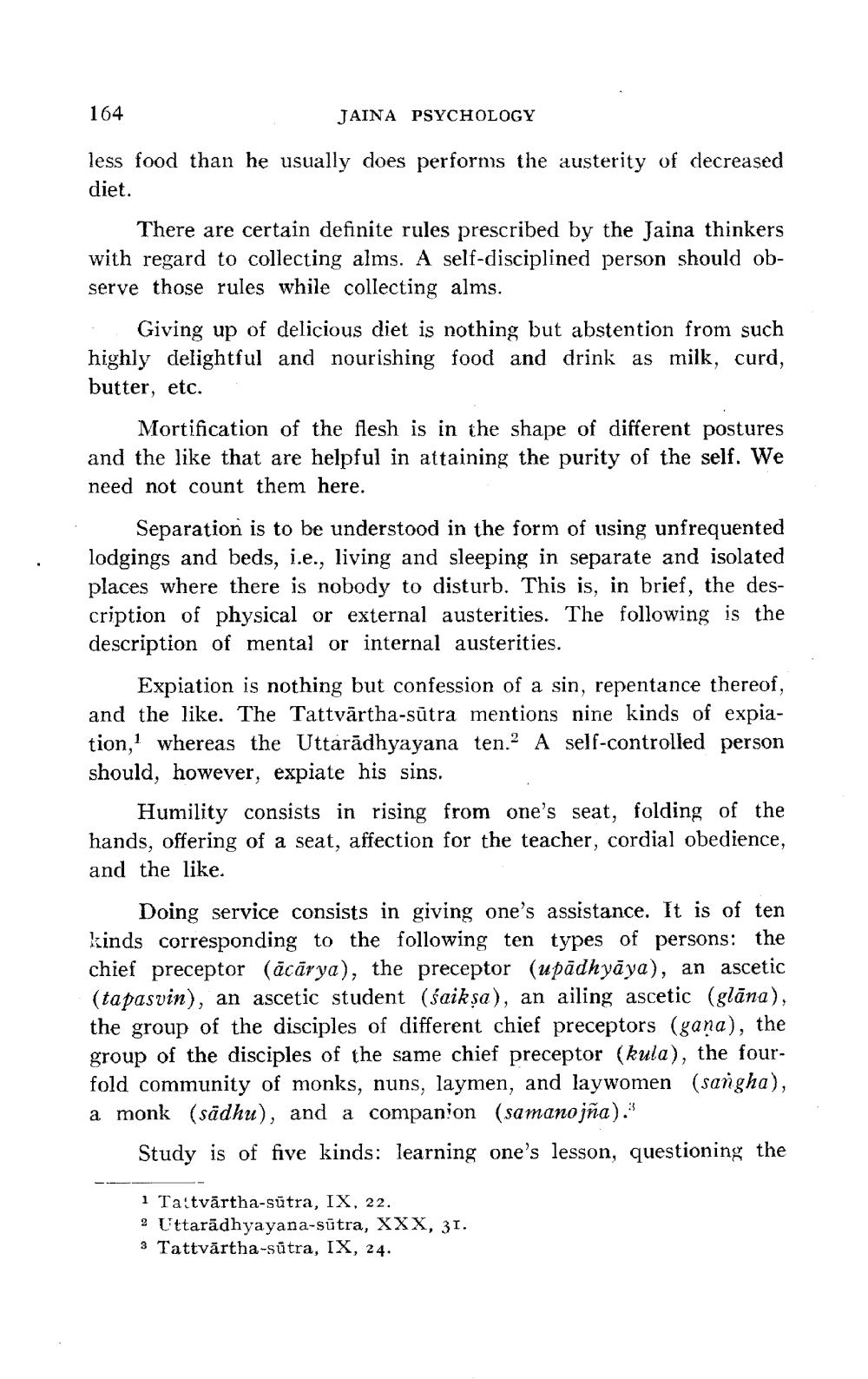________________
164
JAINA PSYCHOLOGY
less food than he usually does performs the austerity of decreased diet.
There are certain definite rules prescribed by the Jaina thinkers with regard to collecting alms. A self-disciplined person should observe those rules while collecting alms.
Giving up of delicious diet is nothing but abstention from such highly delightful and nourishing food and drink as milk, curd, butter, etc.
Mortification of the flesh is in the shape of different postures and the like that are helpful in attaining the purity of the self. We need not count them here.
Separation is to be understood in the form of using unfrequented lodgings and beds, i.e., living and sleeping in separate and isolated places where there is nobody to disturb. This is, in brief, the description of physical or external austerities. The following is the description of mental or internal austerities.
Expiation is nothing but confession of a sin, repentance thereof, and the like. The Tattvärtha-sūtra mentions nine kinds of expiation, whereas the Uttarādhyayana ten. A self-controll should, however, expiate his sins.
Humility consists in rising from one's seat, folding of the hands, offering of a seat, affection for the teacher, cordial obedience, and the like.
Doing service consists in giving one's assistance. It is of ten kinds corresponding to the following ten types of persons: the chief preceptor (ācārya), the preceptor (upādhyāya), an ascetic (tapasvin), an ascetic student (saikșa), an ailing ascetic (glāna), the group of the disciples of different chief preceptors (gana), the group of the disciples of the same chief preceptor (kula), the fourfold community of monks, nuns, laymen, and laywomen (sangha), a monk (sädhu), and a companion (samanojña).
Study is of five kinds: learning one's lesson, questioning the
1 Taitvārtha-sūtra, IX, 22. 2 Uttarādhyayana-sutra, XXX, 31. 3 Tattvārtha-sūtra, IX, 24.




